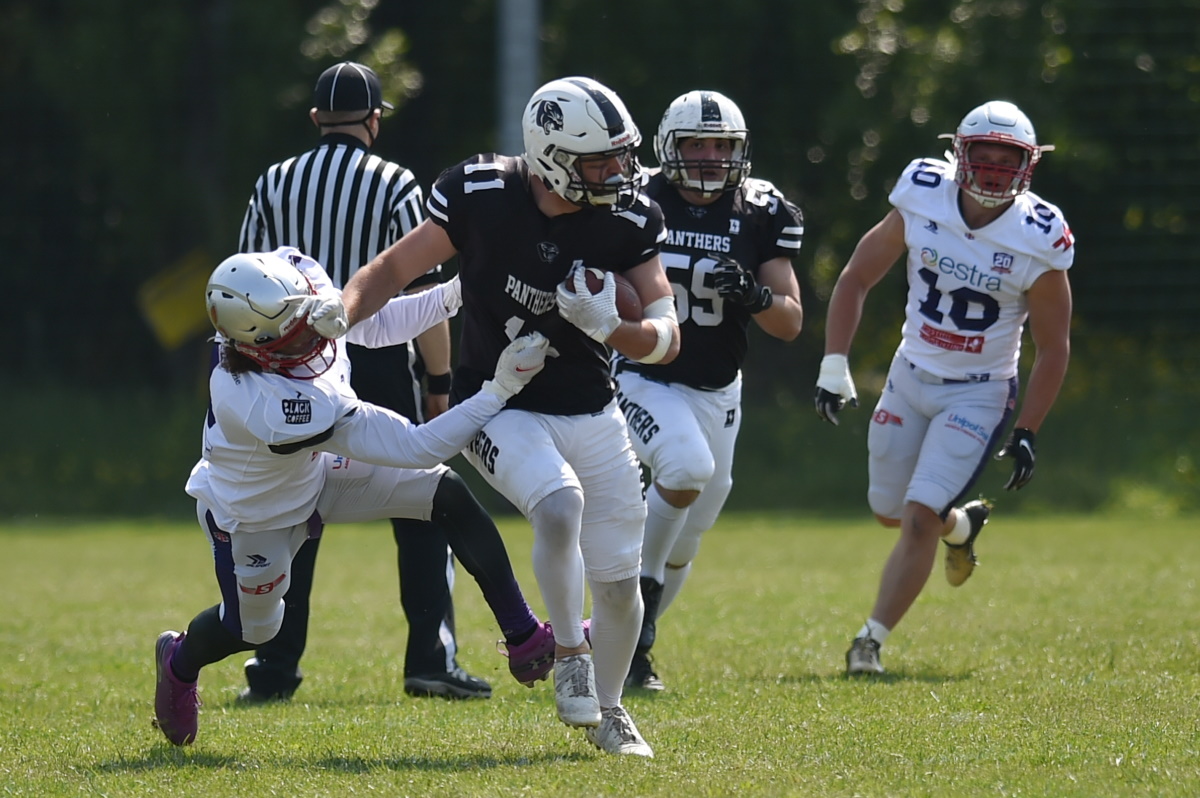That’s because everybody gets their own ball.
John Grisham wrote about Italian football in his novel Playing For Pizza.
That is a thing, I never knew.
That’s pretty cool. ![]()
Plus they have the best team name I have ever heard of in any sport anywhere:
Balogna Warriors!!!
There are enough schools (of the age that would be High School in the US) in the UK that have gridiron teams for there to be league play. The son of a college friend of mine plays on a team. Thinking on this, it may be a private league but I am pretty sure that it’s a school team.
If we can get them to play baseball, as well, they can take on the Nippon Ham Fighters!
I kind of like the name of the Seoul Carnivores.
Rugby in South Africa is way more of an Afrikaans cultural touchstone than an English one.
Fair point
Any further details on this second part? Not heard that before.
I think it was explained in a documentary I saw on BBC once. It seems the French government felt their officer class weren’t manly enough or something so introduced rugby to the country. Beyond that I don’t know.
Wasn’t that the reason that Nelson Mandela wearing a Springboks jersey before South Africa’s World Cup final in 1995 was such a huge moment? That’s what Invictus implied.
Wasn’t that the reason that Nelson Mandela wearing a Springboks jersey before South Africa’s World Cup final in 1995 was such a huge moment? That’s what Invictus implied.
Yes. It was exactly as epic and momentous as the movie implied.
It seems the French government felt their officer class weren’t manly enough or something so introduced rugby to the country.
Sound apocryphal. AFAIK, it was introduced and popularized by English expatriates and was always a club sport.
Oh, and I forgot to add last time, Rugby is also really popular in Argentina.
Oh, and I forgot to add last time, Rugby is also really popular in Argentina.
I already mentioned that above. It’s popular in Argentina but as a secondary sport. It doesn’t challenge football as the most popular sport as it does in large parts of France, you don’t get 80,000 crowds for club games like you can in France.
Sound apocryphal. AFAIK, it was introduced and popularized by English expatriates and was always a club sport.
But that still leaves unanswered the question of why rugby became popular in France, while similar expat clubs in other countries like Germany didn’t lead to the sport becoming popular there.
The statistics suggest there isn’t much difference. Argentina’s Liga Profesional averaged 19,000 fans in 2018-2019 and Super Rugby attendances were around 15,000. Ligue 1 attendance averaged 21,000 and Top 14 averaged 14,000. To be fair, I can’t find average attendance for Argentine regular club rugby games. But it’s also worth noting that France has almost exactly 150% of Argentina’s population.
In any event, if you compare it to association football, rugby is a secondary sport nearly everywhere even in the English-speaking world. Only in Australia and New Zealand is it competitive.
The statistics suggest there isn’t much difference. Argentina’s Liga Profesional averaged 19,000 fans in 2018-2019 and Super Rugby attendances were around 15,000.
Oh come off it - are you really trying to argue that Argentinian club rugby might be as popular as Argentinian club football, or for that matter French club rugby? 5 minutes of googling shows that Argentina currently has no Super Rugby teams, and when they did, a 5 figure attendance was very rare. Whereas there are rumours that a Buenos Aires football match attendance this month might have had an attendance of over 50 000 when the COVID19 capacity was 36 000.
rugby is a secondary sport nearly everywhere even in the English-speaking world. Only in Australia and New Zealand is it competitive.
And for the second time in this thread I find myself quoting myself -
New Zealand is the only country in the world where rugby (union) is unequivocally the most popular type of football
And remember that those 9000 attendances were for the best club in Argentina, the one that got to play against the top teams from Australia, New Zealand and South Africa.
It’s not a fun TV experience if you haven’t grown up with it as happens in America.
What-No mention of Australia’s Ladies Gridiron League?
Australian Gridiron League Women 2016 Round 2 Qld v NSW 07-05-2016 - YouTube
Football does too… in fact, it’s something that can go from as simple as “tackle the man with the ball”, where it’s just running and tackling, to something more formal, with actual plays, etc…
All you really need is a ball and something to serve as a goal line, and you can play something akin to football, although sometimes it ends up as similar to rugby as American football.
I’m not sure why it doesn’t take hold elsewhere, although I’d be willing to bet that whatever reason that is, it’s the flip side of why soccer never took hold really strongly in the US.

